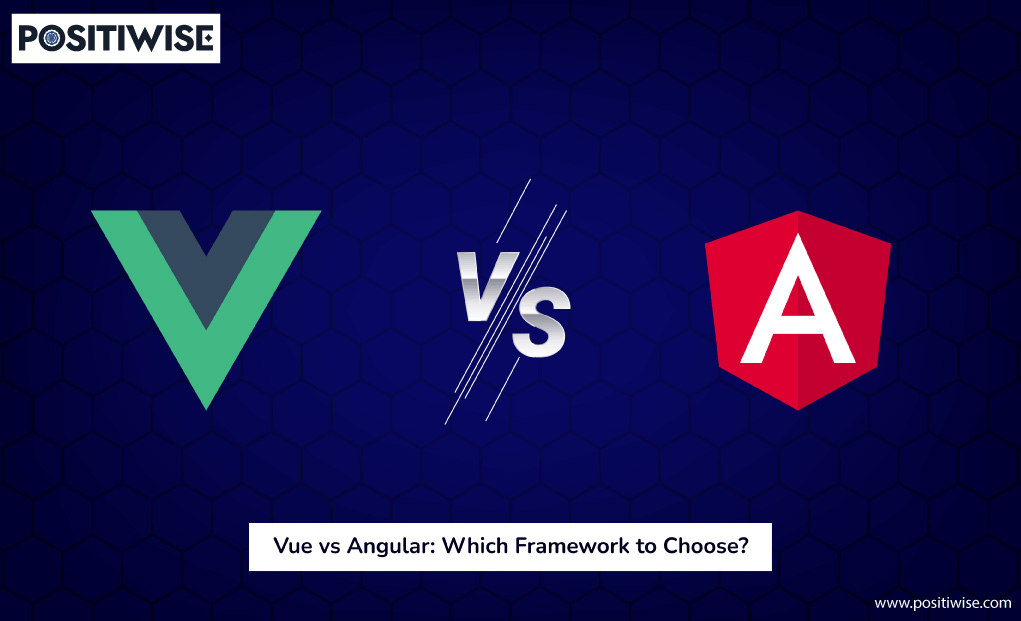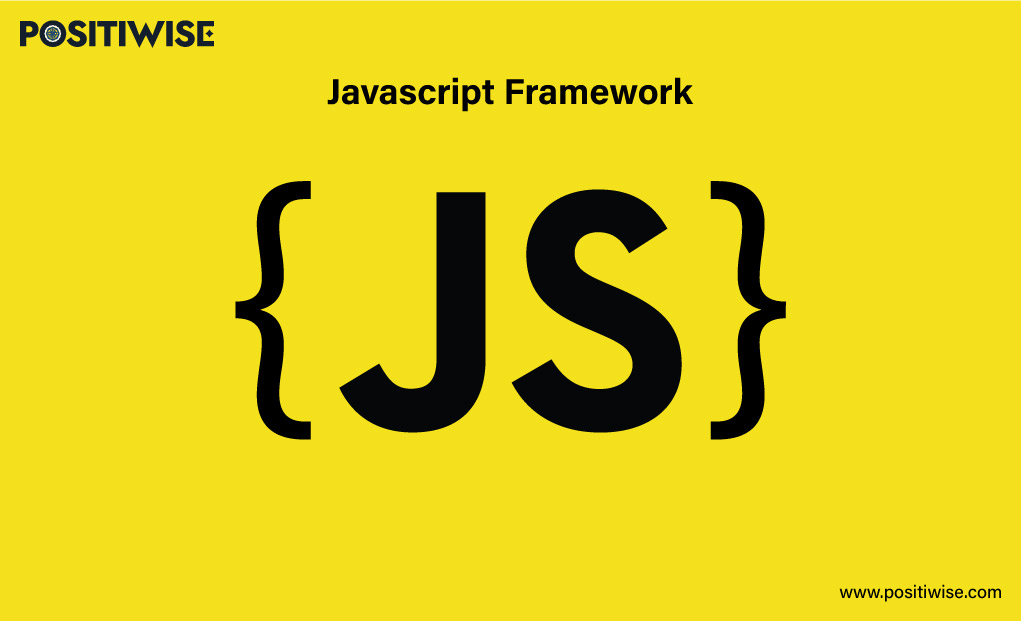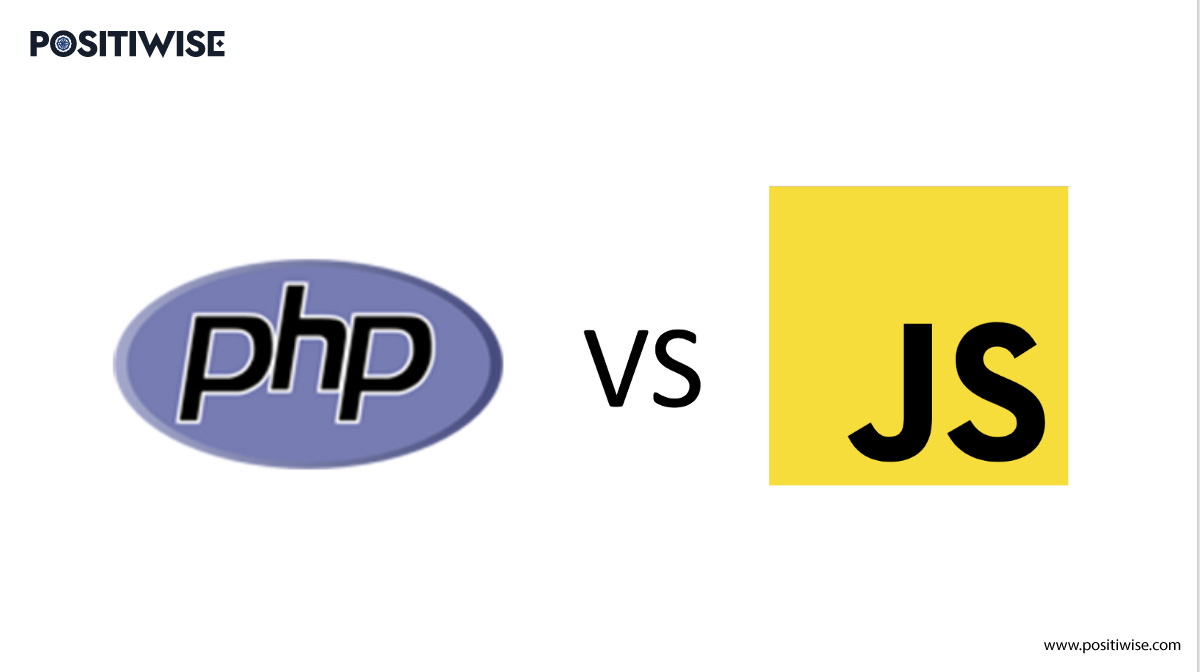Quick Overview:
When you are developing an application, there are many decisions to make. You can use the same language for server-side and client-side development or use completely different languages on both sides of the application. Regarding the framework for web applications, Angular is at the top of the list.
Vue JS development is also gaining popularity because it’s a powerful and flexible framework that offers many benefits at a very reasonable price. Both best javascript frameworks will be here to stay for a long time because they’re both powerful and efficient when delivering an application from idea to published product. In this article, you will learn the difference between Vue vs Angular.
What is Vue Framework?
Vue is one of the best front-end development frameworks whose structure is based on JavaScript along with HTML and CSS. It offers developers to perform component-based programming to curate responsive interfaces effectively. In addition, Vue is also known as a progressive framework due to its extreme flexibility in the growing market.
You can use Vue in multiple different ways, such as:
- To embrace a static HTML app structure
- Integrate it as a web component on a webpage
- To build a single-page application (SPA)
- To generate a static site and for server-side rendering
Furthermore, Vue is relatively lightweight, which helps to put less load on the server and speedily execute requests. It also offers the advantage of embedding additional and customized components through its exponential decoupling mechanism. Numerous leading applications use Vue as their primary technology, such as Grammarly, Gitlab, Adobe, Teleo, Font Awesome, and more.
Additionally, you can prefer Vue to enhance the look of already developed webpages and provide end-users with a progressive app experience. Thus, Vue can get used where a high-performance, lightweight, and flexible frontend technology is required.
What is Angular Framework?
Angular is also based on JavaScript scripting language and is a frontend development framework only. HTML works as its basic template, leading developers to extend functionalities and clearly define components. In addition, AngularJS provides dependency injection and data binding functionalities, which help to reduce the code and effort.
Primarily, Angular is the product of Google, which anyone can use freely to build a SPA (single-page application) or a full-fledged solution. Moreover, it offers leverage from the Model View Controller characteristic that helps divide the overall application into different parts. It helps to work efficiently on all the components and creates high compatibility between them.
Additionally, Angular receives frequent updates compared to other frameworks, making it more secure, compatible, and high-performing. It also aids in efficiently integrating Agular-based application with new technologies and provide a seamless experience to all stakeholders.
Furthermore, it offers developers a code reusability option, ensuring it wouldn’t create any complexities. Due to it, the development and maintenance costs are reduced, and the application gets developed economically using the AngularJS framework.
Difference Between Vue vs Angular Framework
Whether it’s Vue JS or Angular JS, both are JavaScript-based and are used for building the frontend of applications. But, still, they differentiate from each other in numerous aspects, such as core architecture, performance, reactivity, and more.
- Architecture
- Reactivity
- Performance
- Community
Architecture
The primary difference comes at the architectural level.
- Angular JS enables an MVVM (Model-View-ViewModel) model.
- Vue JS uses only ViewModel (VM).
Due to this, Angular JS can be used for creating a complex and full-fledged application, but Vue JS only gets used for curating the front end of an application.
- Angular JS is compatible with all significant server-side programming and scripting languages, such as PHP, Python, Java, and more.
- Vue JS restricts to the front end only. Also, developers need plenty of time to learn and gain expertise in Angular development.
However, they can learn about Vue JS within a minimal time and use it for building a single application within hours.
Reactivity
- The second primary aspect differentiating Angular JS and Vue JS is their reactivity. Angular is entirely based on JavaScript, but Vue JS uses HTML and CSS. With Angular, you can develop a real-time application.
- However, Vue JS is preferred for developing single-page solutions. When a data property is modified in a Vue application, it automatically updates it on the interface. But Angular-based applications are different.
Furthermore, Angular handles the errors at compile time, and Vue manages them during the runtime. Angular also offers routing, forms management, and dependency injection built-in features, making it an authentic choice for large-scale projects.
Performance
Per the performance factor, Vue is faster than Angular due to its lightweight architecture and focus on the application’s view layer. On the other hand, Angular offers multiple built-in mechanisms, making it heavy and taking some more time than Vue to execute requests. Additionally, Vue uses the virtual DOM, which supports as an additional pillar in accelerating its performance across platforms.
Community
Regarding the community, Vue has a smaller but still active community, and Angular has a large and active community, which means you can find many resources, articles, tutorials, and tools for Angular JS development.
Recommended Read: HttpClient or RestSharp: Which Core Should You Choose in .NET?
Vue vs Angular: The Difference Table
| Basis of Comparison | Vue | Angular |
|---|---|---|
| Type | Progressive JavaScript Framework | JavaScript Framework |
| Learning Curve | Easy to get started, simple API | Steep learning curve |
| Size | Small size, lightweight (21kb min+gzip) | Quite large in size |
| Data Binding | Supports two-way data binding | Supports two-way data binding |
| Templating | Uses HTML-based templates with JSX optional | Uses HTML-based templates |
| Routing | Vue Router is the official router | Angular router is built-in |
| State Management | Vuex for state management | Supports multiple state management options |
| Styling | No CSS framework imposed, can use any preprocessor | Component-scoped CSS stylesheets |
| Testing | Jest, Vue Test Utils, Cypress for E2E testing | Karma, Jasmine, Protractor for E2E testing |
| Mobile App Development | Weex for mobile app development | NativeScript, Ionic for mobile app development |
| Browser Support | IE10+ | IE9+ |
| Learning Resources | Official docs, community supported | Extensive official documentation |
| Popularity | Growing popularity | Very popular, used by many enterprises |
Role of Developer to Choose the Framework
Developers play a primary role when selecting a framework for application or website development. Their skillset, experience, and ability to understand the framework lead to selecting the most appropriate development technology. And it’s for choosing both frontend and backend technology.
Before finalizing any framework, the developer would evaluate the following:
- The complexity of the project
- Short and Long-term goals of the client
- Security requirements
- Target stakeholders
- Budget
- Timeline
- Required features and more
After analyzing all such factors, the developer will cross-verify the details with framework characteristics and features. As a result, you will get the best-in-class framework finalized for the development of your application.
To select between Angular JS and Vue JS, you need to hire a JavaScript App Developer who understands the differentiation. I also have experience in the development domain using Angular and Vue. It will help to select a solution according to requirements and project objectives.
However, with the above difference, you can understand that if the application is going to be large and complex, then Angular is a good choice. And if you need a single-page application with lightning-fast speed, Vue is a reliable selection. But, always consult a developer or a software development company before selecting any of the frameworks.
Embark on a Journey of Web Excellence Today!
Elevate your development prowess with a robust front-end framework by your side.
Conclusion on Vue vs Angular
Vue vs Angular both are popular JavaScript frameworks for building web applications but have some fundamental differences. Vue JS is lightweight, easy to learn, and well-suited for creating simple to moderate complexity web applications. In contrast, Angular is feature-rich, more complex to understand, and well-suited for building large and complex web applications.
Furthermore, both frameworks have their strengths and weaknesses, and the selection between them will depend on your project requirements and the development team’s skillset. Additionally, the developer should consider the project’s complexity, required app features, long-term business objectives, and cost when choosing a framework. It will help you to select the most well-founded framework, offering functionalities to fulfill your needs.
Expert in Marketing Strategy and Brand Recognition
Jemin Desai is Chief Marketing Officer at Positiwise Software Pvt Ltd, he is responsible for creating and accelerating the company’s marketing strategy and brand recognition across the globe. He has more than 20 years of experience in senior marketing roles at the Inc. 5000 Fastest-Growing Private Companies.






